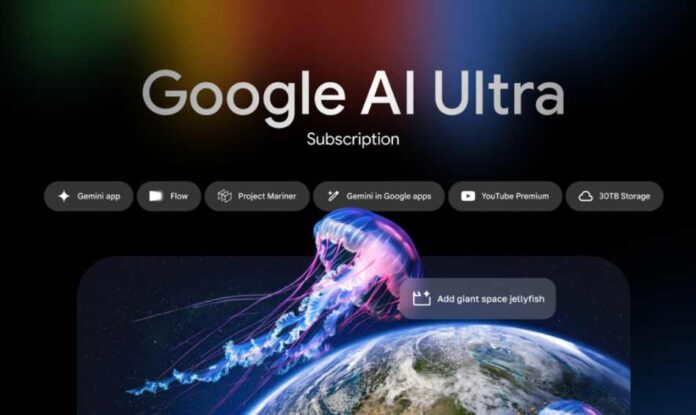- Google may soon make AI Mode the default in Search, replacing the classic blue-link format.
- AI Mode delivers conversational, AI-generated answers while pushing traditional links aside.
- Publishers and websites fear major traffic losses as users click less.
- Google is promoting AI Mode heavily, despite offering mixed public signals.
For more than two decades, Google Search has been the front door to the internet. You type a question, hit enter, and get a neat stack of blue links. Simple, predictable, and dependable. But that doormat might be getting swapped out for something shinier and more robotic. Google is quietly preparing to make AI Mode the main way billions of people use search, and the implications are enormous.
Hints of this shift came when Google product manager Logan Kilpatrick responded to speculation on X (formerly Twitter) with a coy “soon : )”. Add to that the shiny new homepage for AI Mode at google.com/ai, and it’s clear Google is nudging its users toward a different future.
So what is AI Mode, why is Google so excited about it, and what does it mean for the rest of us? Let’s break it down.
Wait, Where Did My Blue Links Go?
AI Mode is essentially Google Search on steroids. Instead of presenting a list of links, it combines the company’s Gemini AI with live web results to spit out conversational answers at the top of the page.
Imagine asking for the best ways to fix a leaky faucet. Instead of scrolling through ten different plumbing blogs, you’d get a crisp AI-generated explanation, step by step, right at the top. Handy, yes. But those plumbing blogs? They might never see your click.
This is not entirely new. Google already offers “AI Overviews,” those boxed summaries that often answer your question before you even leave the page. AI Mode takes that concept and makes it the centerpiece of the search experience.
The familiar list of links is still there, but increasingly it’s shoved off to the side like a salad you never ordered.
Publishers Are Sweating Buckets
For websites, this is where things get scary. Traffic from Google is the oxygen that keeps countless businesses, news outlets, recipe blogs, and even indie creators alive.
Research already shows that AI Overviews cut into clicks. If AI Mode becomes the default, the losses could snowball. Why click through to a cooking blog when Google’s AI will tell you how to bake banana bread without ever leaving the page?
Publishers are starting to notice. Fewer clicks mean fewer ad impressions, fewer subscribers, and fewer ways to sustain content. For smaller creators and niche sites, it could be devastating.
“This isn’t just a tweak to search,” one industry observer said. “It’s a fundamental change in how the web works. Google built its empire on helping people find other websites. Now it looks like it wants to keep them on its own.”
Google’s Mixed Messages
Google, for its part, is sending out mixed signals. Kilpatrick’s “soon : )” seemed to confirm that a big change was coming. But Robby Stein, Google’s vice president of Search, tried to calm the waters in his own X post. He insisted people shouldn’t “read too much into this” and said the company was focused on making AI Mode easy to access for those who want it.
That sounds reassuring, until you look at what Google has been doing. The dedicated AI homepage, global rollout of AI Mode, and heavy marketing all point in one direction. This isn’t a quirky experiment. It’s Google’s next big thing.
Google has reported tens of millions of monthly active users trying AI Mode this summer. With numbers like that, it’s hard to argue this is just a side project.
The Doormat Problem
Here’s the blunt truth: for billions of people, Google isn’t just a website. It’s the internet’s front door. When you want to know something, you Google it. Not Bing it, not DuckDuckGo it. Google it.
If Google changes the welcome mat, everyone has to walk over it.
That doesn’t mean alternatives don’t exist. DuckDuckGo promises privacy, Bing has its own AI tricks, and there are niche search engines for specific needs. But the reality is that Google holds the market share. It’s the verb.
So if AI Mode becomes the default, you may not have much of a choice. You’ll adapt, even if you don’t love it.
The Future of Search: Helpful or Harmful?
For everyday users, the change might not feel dramatic at first. Instead of scrolling through links, you’ll get a clean, conversational summary with references neatly tucked to the side. If you just want a quick answer, that’s great.
But zoom out and the picture gets murkier. If fewer people click on external sites, the information ecosystem that powers the web could shrink. Blogs, independent journalism, and even government resources rely on visibility in search. If their reach shrinks, the diversity of voices online could shrink with it.
Google is walking a fine line here. It wants to stay innovative and keep pace with the AI boom, but it also risks destabilizing the very web it built its empire on.
So, Should You Worry?
That depends. If you’re just a casual user, you might even like AI Mode. It’s faster, cleaner, and often more convenient.
If you’re a publisher, blogger, or business owner, though, the writing’s on the wall. You’ll have to rethink how to reach audiences in a world where Google keeps more answers in-house.
And for the rest of us, the question is bigger than convenience. It’s about whether the internet remains a place where information flows freely—or whether it slowly becomes a filtered stream, shaped by one company’s AI.
For now, classic search is still an option. But the long-term trend is clear. AI Mode is coming, and Google is determined to make it the foundation of how we look for things online.
Follow TechBSB For More Updates

